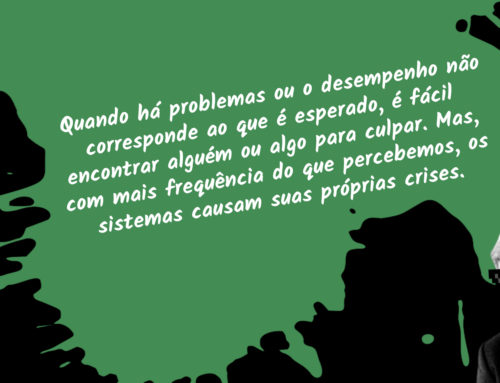Everyone has heard this phrase: many heads think better than one. A pity that few have heard about the phenomena that promote group decisions of dubious or even disastrous quality.
I will not enter into the argument here about the slowness of decision-making by consensus. If you want, here’s a blogpost about it.
My point is another. It is about the pitfalls that the group falls when it argues and decides together.
People say: Hey, we need to decide about…
Supposedly, the good side of this process is that everyone becomes compromised or engaged with the implementation of the decision. In theory. But first let’s dissect this process.
When we are debating which decision to take as a group, we are in a cloudy social environment.
At stake is not only the best way, but who is right and therefore is more intelligent, self-image and self-esteem of the group, who has more influence in the group, who can bear more time discussing, if we are united as a group, and so on…
We are social beings and this game happens imperceptibly, but it strongly influences the decision-making process. With the ball rolling in this social context, some phenomena emerge:
- The emergence of a pressure and taste for uniformity. In addition to self-censorship, there are sometimes the guardians of consensus, people who take an informal role in inhibiting any “disloyal” member. The dissenting voice is seen as an obstacle to the group’s much-desired union.
- A lack of openness to new ideas, always ignoring or rationalizing any questioning about the falsity of the group’s assumptions. Even if someone can express their opinion that differs from consensus, this voice can be ignored or rationalizations end up inhibiting conversation that explores different perspectives.
- Groups tend to make very risky or far more conservative decisions when compared to the individual decisions of the same people involved. This pendulum can go anywhere, depending on the history of the group, culture, and so on. That is, we misjudge the risk when we are deciding in a group. See details here.
- Groups can make decisions paradoxically opposed to the intentions of all the people present in the process. This has a name and is called the Abilene Paradox. Amazing.
- Group decisions can be easily manipulated by anyone who has power and/or influence over some people. This means allowing someone to hide behind a group decision without ever revealing their intentions.
These symptoms can all be grouped within the broad term Groupthink.
The main causes of Groupthink are:
- Excessive appreciation of the group union. The cohesion of the group has become more important than the individual expression of opinions and the quality of decisions.
- Structural failures such as low diversity of participants, very controlling leader, lack of rules and practices that define the decision-making process and give voice to all.
- Very stressful environment, with a history of failures and difficulty in decision-making processes and conflict resolution.
How about commitment?
If you still feel it is important to make group decisions because it generates more commitment, imagine the following situation: you consent to a decision or proposal being presented (remember that you will be playing the game above) and soon after you find reasons that show the decision was wrong.
You have found a dilemma. Be consistent with what was decided or be rational in the face of perceived reality. If the decision is minor and easily reversible, you will ask for a review of the decision, otherwise you will have to live with a decision that now seems wrong.
Living with something you know to be irrational does not increase your commitment. The only thing that can keep you faithful to what has been decided is the fear of retaliation from the group or from a boss. Realize that it was not the decision that generated the “commitment”, but fear…
A decision only creates real commitment when it proves to be a good decision, helping the group to achieve its purpose. We don’t have to decide everything together. ;)






Leave A Comment